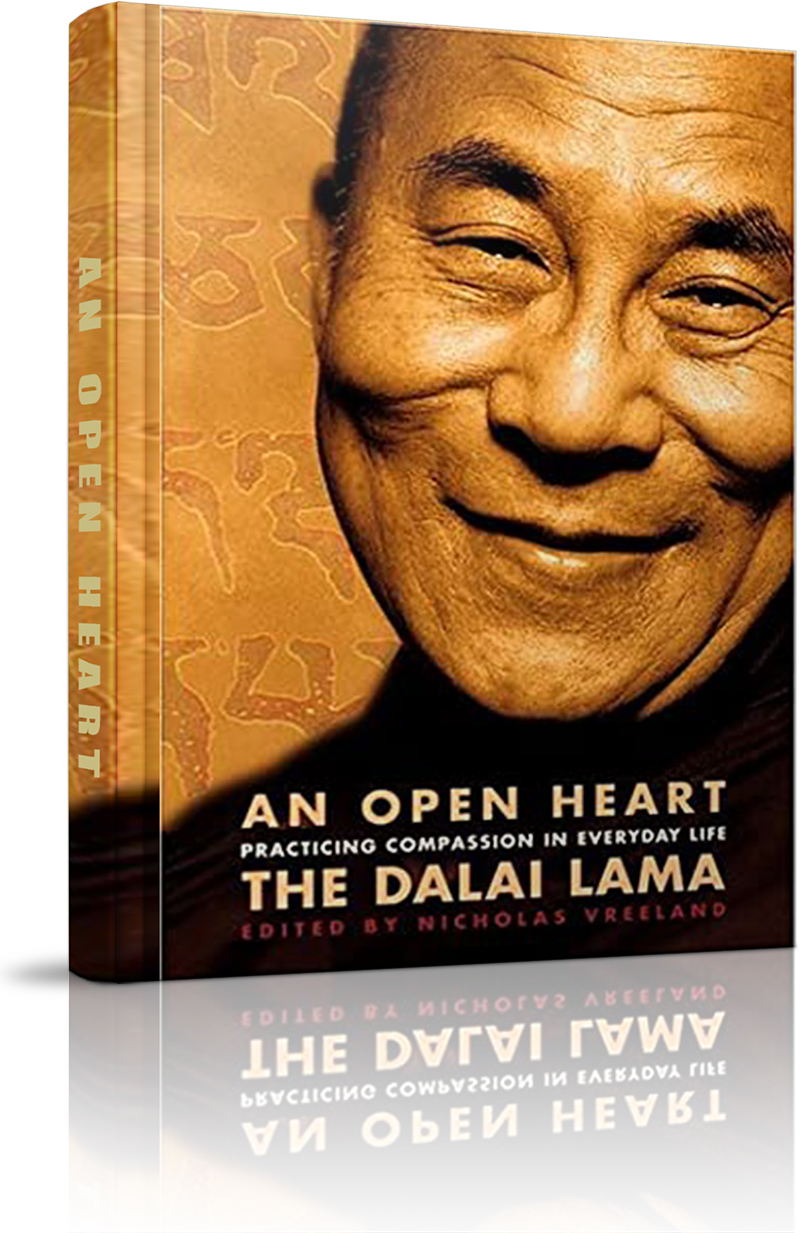Đừng chờ đợi những hoàn cảnh thật tốt đẹp để làm điều tốt đẹp; hãy nỗ lực ngay trong những tình huống thông thường. (Do not wait for extraordinary circumstances to do good action; try to use ordinary situations. )Jean Paul
Như đá tảng kiên cố, không gió nào lay động, cũng vậy, giữa khen chê, người trí không dao động.Kinh Pháp cú (Kệ số 81)
Một người trở nên ích kỷ không phải vì chạy theo lợi ích riêng, mà chỉ vì không quan tâm đến những người quanh mình. (A man is called selfish not for pursuing his own good, but for neglecting his neighbor's.)Richard Whately
Hãy làm một người biết chăm sóc tốt hạt giống yêu thương trong tâm hồn mình, và những hoa trái của lòng yêu thương sẽ mang lại cho bạn vô vàn niềm vui và hạnh phúc.Tủ sách Rộng Mở Tâm Hồn
Hãy tin rằng bạn có thể làm được, đó là bạn đã đi được một nửa chặng đường. (Believe you can and you're halfway there.)Theodore Roosevelt
Hãy học cách vui thích với những gì bạn có trong khi theo đuổi tất cả những gì bạn muốn. (Learn how to be happy with what you have while you pursue all that you want. )Jim Rohn
Khi mọi con đường đều bế tắc, đừng từ bỏ. Hãy tự vạch ra con đường của chính mình. (When all the ways stop, do not give up. Draw a way on your own.)Sưu tầm
Hãy nhớ rằng hạnh phúc nhất không phải là những người có được nhiều hơn, mà chính là những người cho đi nhiều hơn. (Remember that the happiest people are not those getting more, but those giving more.)H. Jackson Brown, Jr.
Hãy sống như thế nào để thời gian trở thành một dòng suối mát cuộn tràn niềm vui và hạnh phúc đến với ta trong dòng chảy không ngừng của nó.Tủ sách Rộng Mở Tâm Hồn
Dễ thay thấy lỗi người, lỗi mình thấy mới khó.Kinh Pháp cú (Kệ số 252)
Bạn sẽ không bao giờ hạnh phúc nếu cứ mãi đi tìm những yếu tố cấu thành hạnh phúc. (You will never be happy if you continue to search for what happiness consists of. )Albert Camus
Trang chủ »» Danh mục »» SÁCH ANH NGỮ HOẶC SONG NGỮ ANH-VIỆT »» An Open Heart »» Chapter 5: The afflictions »»
An Open Heart
»» Chapter 5: The afflictions
 Xem Mục lục
Xem Mục lục  Vietnamese || Đối chiếu song ngữ
Vietnamese || Đối chiếu song ngữ
- none
- Introduction
- Chapter One: The desire for happiness
- Chapter Two: Meditation - A beginning
- Chapter 3: The material and immaterial world
- Chapter 4: Karma
- »» Chapter 5: The afflictions
- Chapter 6: The vast and the profound: Two aspects of the Path
- Chapter 7: Compassion
- Chapter 8: Meditating on compassion
- Chapter 9: Cultivating equanimity
- Chapter 10: Bodhicitta
- Chapter 11: Calm abiding
- Chapter 12: The nine stages of calm abiding meditation
- Chapter 13: Wisdom
- Chapter 14: Buddhahood
- Chapter 15: Generating Bodhicitta
- Afterword (Khyongla Rato and Richard Gere)
- none

I am aware that in Western psychology, expressing feelings and emotions, even anger, is often encouraged. Certainly many people have endured traumatic experiences in their past, and if these emotions are suppressed, they may indeed cause lasting psychological harm. In such cases, as we say in Tibet, “When the conch shell is blocked, the best way to clear it is to blow into it.”
Having said this, I do feel that it is important for spiritual practitioners to adopt a stance against strong emotions such as anger, attachment, and jealousy and devote themselves to developing restraint. Instead of allowing ourselves to indulge in occurrences of strong emotions, we should work at decreasing our propensity toward them. If we ask ourselves whether we are happier when angry or when calm, the answer is evident. As we discussed earlier, the troubled mental state that results from afflictive emotions immediately disturbs our inner equilibrium, causing us to feel unsettled and unhappy. In our quest for happiness, our main aim should be to combat these emotions. We can achieve this only by applying deliberate and sustained effort over a long period of time - we Buddhists would say many successive lifetimes.
As we have seen already, mental afflictions do not disappear of their own accord; they don’t simply vanish over time. They come to an end only as the result of conscious effort to undermine them, diminish their force, and ultimately eliminate them altogether.
If we wish to succeed, we must know how to engage in combat with our afflictive emotions. We begin our practice of the Buddha’s Dharma by reading and listening to experienced teachers. This is how we develop a better picture of our predicament within the vicious circle of life and become familiar with the possible methods of practice to transcend it. Such study leads to what is called “understanding derived through listening.” It is an essential foundation for our spiritual evolution. We must then process the information we have studied to the point of profound conviction. This leads to “understanding derived through contemplation.” Once we have gained true certainty of the subject matter, we meditate on it so that our mind may become completely absorbed by it. This leads to an empirical knowledge called “understanding derived through meditation.”
These three levels of understanding are essential in making true changes in our lives. With greater comprehension derived through study, our conviction becomes more profound, engendering a more powerful realization in meditation. If we lack understanding derived through study and contemplation, even if we meditate very intensely, we have difficulty becoming familiar with the subject we are meditating on, be it the devious nature of our afflictions or the subtle character of our emptiness. This would be similar to being forced to meet someone whom we don’t wish to meet. It is therefore important to implement these three stages of practice in a consecutive manner.
Our environment also has a great influence on us. We need a quiet environment in order to undertake our practice. Most important, we need solitude. By this I mean a mental state free of distractions, not simply time spent alone in a quiet place.
OUR MOST DESTRUCTIVE ENEMY
Our practice of the Dharma should be a continual effort to attain a state beyond suffering. It should not simply be a moral activity whereby we avoid negative ways and engage in positive ones. In our practice of the Dharma, we seek to transcend the situation in which we all find ourselves: victims of our own mental afflictions, the enemies of our peace and serenity. These afflictions - such as attachment, hatred, pride, greed, and so forth - are mental states that cause us to behave in ways that bring about all our unhappiness and suffering. While working to achieve inner peace and happiness, it is helpful to think of them as our inner demons, for like demons, they can haunt us, causing nothing but misery. The state beyond such negative emotions and thoughts, beyond all sorrow, is called nirvana.
Initially, it is impossible to combat these powerful negative forces directly. We must approach them gradually. We first apply discipline; we refrain from becoming overwhelmed by these emotions and thoughts. We do so by adopting an ethically disciplined way of life. For a Buddhist, this means that we refrain from the ten nonvirtuous actions. These actions, which we engage in physically by killing or stealing, verbally by lying or gossiping, and mentally by coveting, are all expressions of deeper mental afflictions such as anger, hatred, and attachment.
When we think along these lines, we come to realize that extreme emotions such as attachment - and particularly anger and hatred - are very destructive when they arise in us and that they are also very destructive when they arise in others! One could almost say that these emotions are the real destructive forces of the universe. We might go further and say that most of the problems and suffering we experience, which are essentially of our own making, are ultimately created by these negative emotions. One could say that all suffering is in fact the result or fruit of negative emotions such as attachment, greed, jealousy, pride, anger, and hatred.
Although at first we are not able to root out these negative emotions directly, at least we are not acting in accordance with them. From here we move our meditative efforts to directly counter our afflictions of the mind and to deepen our compassion. For the final stage of our journey we need to uproot our afflictions altogether. This necessitates a realization of emptiness.
MUA THỈNH KINH SÁCH PHẬT HỌC
DO NXB LIÊN PHẬT HỘI PHÁT HÀNH
Mua sách qua Amazon sẽ được gửi đến tận nhà - trên toàn nước Mỹ, Canada, Âu châu và Úc châu.
Quý vị đang truy cập từ IP 216.73.216.178 và chưa ghi danh hoặc đăng nhập trên máy tính này. Nếu là thành viên, quý vị chỉ cần đăng nhập một lần duy nhất trên thiết bị truy cập, bằng email và mật khẩu đã chọn.
Chúng tôi khuyến khích việc ghi danh thành viên ,để thuận tiện trong việc chia sẻ thông tin, chia sẻ kinh nghiệm sống giữa các thành viên, đồng thời quý vị cũng sẽ nhận được sự hỗ trợ kỹ thuật từ Ban Quản Trị trong quá trình sử dụng website này.
Việc ghi danh là hoàn toàn miễn phí và tự nguyện.
Ghi danh hoặc đăng nhập
... ...


 Trang chủ
Trang chủ










